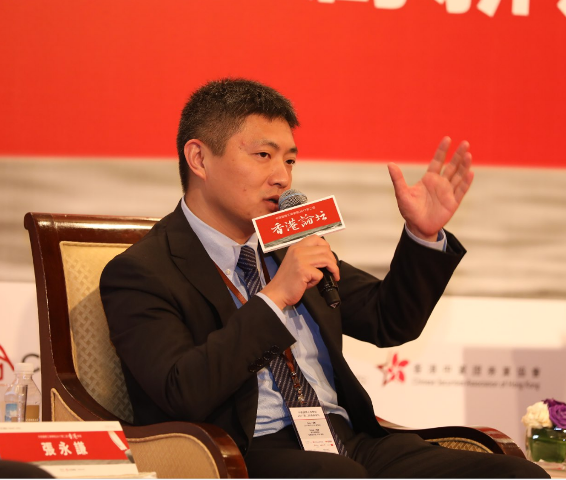Making the cloud smarter

Zhang Yongqian,
VP of Business, Horizen Robotics
Big data doesn’t necessarily mean intelligent data, so now an AI company is stepping in to make using the cloud even smarter.
“My company is called Horizen Robotics but actually we don’t do robotics, what we do is artificial intelligence (AI). It’s a very hot topic these days. Big companies like BAT [Baidu, Alibaba & Tencent] and Google are all working on AI. But they’re working on the cloud, while we are working on the devices.
We all have a lot of electrical appliances at home and in our daily life, and these devices need to be able to sense the environment [around us]. For example, a vehicle needs to sense the environment, then send data to the cloud and the cloud will do the data processing. In this age of big data, we have sensors, cameras, mobile phones, so many devices in our environments. A lot of the data needs to be sent to the cloud. But actually 99% of this data is just rubbish; it’s not really useful or meaningful.
So we need something to regulate and govern the data at the level of the devices. Basically, they need to identify which data is useful, and then this useful information will be sent to the cloud where it is processed. This will basically lower the burden of the cloud processing capability [as it only processes date that is deemed useful]. This is what our company does.
Smart lifestyle
Smart household appliances and driverless cars are the two major trends on which we are focused. For driverless cars, we have a VR-based smart technology system. It is used to anticipate the path of passengers and the solutions that can be provided to drivers. This is basically a camera mounted on the car. By the end of 2017 we’ll have driverless solutions based on this system.
The second issue is safe transport. Hong Kong doesn’t need cameras of this kind because the city itself is very safe. But transport cameras, for the sake of safety [when driving], are very necessary, that’s why we are diving into this area as well. In April we collaborated with Intel on a smart server system that inspects the flow of traffic and people on the roads, inspects the model and size of cars, the direction of passengers when they walk and the colour of their clothing, for example. So these are the things we have been doing in terms of driverless cars.
Meanwhile, what we do in terms of the smart household complements the smart manufacturing industry. [We believe] the process should be smart but the product itself should be a result of that intelligence.
Smart future in manufacturing
I’ve been in the semiconductor industry for the past 10 to 20 years and I’ve seen the impact on economic development, thanks to the low labour cost, benefits of a large population and high efficiency in manufacturing.
But gradually we have seen the profits from manufacturing dwindling. The traditional channels have been giving way to modern ones, for example, online platforms. And those who are in control of channels – especially online channels – get a larger share of the profits. That’s why when it comes to manufacturing household devices there are opportunities available if you go smart.
For Horizen, we want to use this technology to make the products themselves smart. For example, if you look in the fridge and see that you are running out of beer, you don’t need to go online to buy more. You just need to give instructions to the fridge, and it can give you an alert to let you know you are running out of beer. The fridge can detect by itself, for example, that your favourite brand is Budweiser and there’s only one bottle left and you need to buy more. So this is what we want to do, to make the products themselves smart.
According to a survey we’ve done, we have one trillion household appliances. But the middle class has total consumption of 50 trillion. So we need to have the smart technology – and smart technology within products themselves – so that we can get a larger share of that 50 trillion, instead of the 1 trillion we now have.
The products themselves should be smart, thus manufacturers of these products will have better opportunities. Also, services can be provided based on big data, and should incorporate offline data with online data.”
Edited excerpts from a panel discussion on Opportunities for Entrepreneurship and Investment in the Smart Manufacturing Industry at CEIBS Hong Kong Forum on April 21, 2017.
Click the links below for more details as they become available on CEIBS Europe Forums in:
London – July 6
Paris – July 11
Munich – September 13
Warsaw – September 15
Zurich – October 18.













